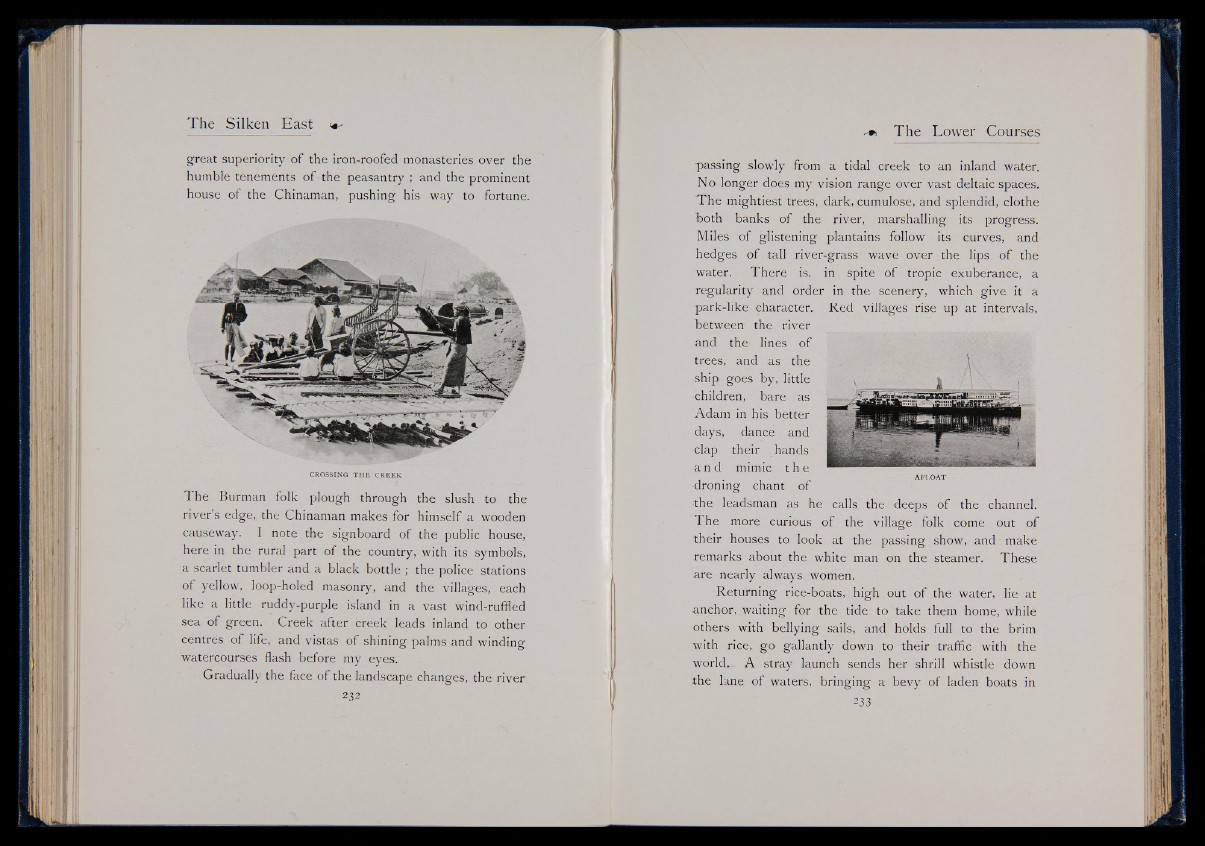
great superiority of the iron-roofed monasteries over the
humble tenements of the peasantry ; and the prominent
house of the Chinaman, pushing his way to fortune.
CROSSING TH E C R E EK
The Burman folk plough through the slush to the
river’s edge, the Chinaman makes for himself a wooden
causew'ay. I note the signboard of the public house,
here in the rural part of the country, with its symbols,
a scarlet tumbler and a black bottle ; the police stations
of yellow, loop-holed masonry, and the villages, each
like a little ruddy-purple island in a vast wind-ruffled
sea of green. Creek after creek leads inland to other
centres of life, and vistas of shining palms and winding
watercourses flash before my eyes.
Gradually the face of the landscape changes, the river
232
passing slowly from a tidal creek to an inland water.
No longer does my vision range over vast deltaic spaces.
T h e mightiest trees, dark, cumulose, and splendid, clothe
Both banks of the river, marshalling its progress.
Miles of glistening plantains follow its curves, and
hedges of tall river-grass wave over the lips of the
water. There is, in spite of tropic exuberance, a
regularity and order in the scenery, which give it a
park-like character.
Red villages rise up at intervals,
Between the river
and the lines of
trees, and as the
ship goes by, little
children, bare as
Adam in his better
days, dance and
clap their hands
a n d mimic th e
A F LO A T
droning chant of
the leadsman as he calls the deeps of the channel.
1 he more curious of the village folk come out of
their houses to look at the passing show, and make
remarks about the white man on the steamer. These
are nearly always women.
Returning rice-boats, high out of the water, lie at
anchor, waiting for the tide_ to take them home, while
others with bellying sails, and holds full to the brim
with rice, go gallantly down to their traffic with the
world,. A stray launch sends her shrill whistle down
the lane of waters, bringing a bevy of laden boats in